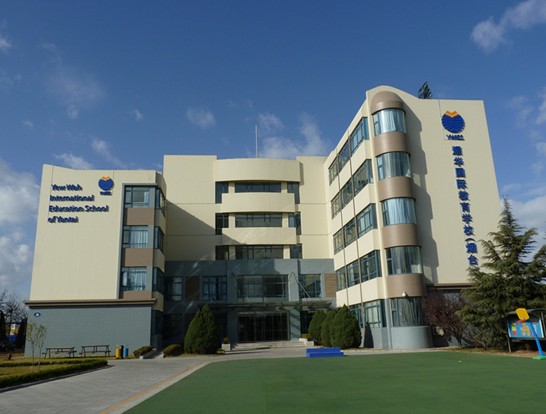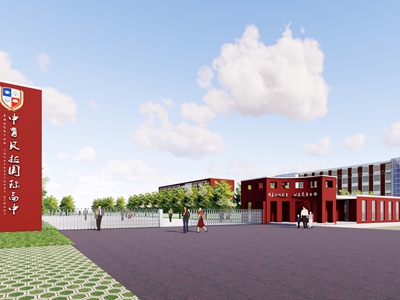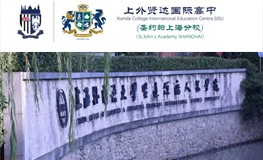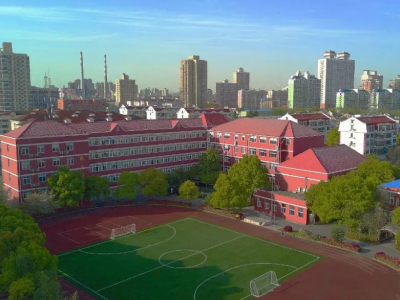演说者:Helen Pearson 文章来源:TED官网
演说题目: 正确养育小孩的秘密,藏在这项70年的伟大研究里
在过去的70年里,英国的科学家们一直在通过他们的生活来研究成千上万的孩子,以找出为什么有些孩子最终会快乐而健康,而另一些孩子却在挣扎。这可能是世界上关于人类发展的最长的研究,它在改变我们的生活方式、学习方式和父母的同时,产生了一些世界上研究得最好的人。

中英文对照翻译
Today I want to confess something toyou, but first of all I'm going to ask you a couple of questions. Howmany people here have children? And how many of you areconfident that you know how to bring up your children in exactly theright way?
今天我想跟你们坦白一些事情, 但是首先我将要问你们一些问题。 在座的有多少已经有小孩了? 你们中又有多少可以自信地说 你知道如何完全正确地 养育你的小孩?
OK, I don't see too many hands going up onthat second one, and that's my confession, too. I've got threeboys; they're three, nine and 12. And like you, and like mostparents, the honest truth is I have pretty much no idea what I'mdoing. I want them to be happy and healthy in their lives, but Idon't know what I'm supposed to do to make sure they are happy andhealthy. There's so many books offering all kinds of conflictingadvice, it can be really overwhelming. So I've spent most of theirlives just making it up as I go along.
好的,我看第二个问题 没有多少人举手, 而这也是我要坦白的。 我有三个儿子, 他们分别是3岁、9岁和12岁。 就像你,就像大多数父母一样, 老实说我真的不知道我在做什么。 我希望他们生活得健康、快乐 但是我不知道我应该怎么做 才能确保他们健康快乐。 市面上有很多提供各种互相矛盾的建议的书籍, 真的是令人不知所措。 所以大多数时间我都是边摸索边抚养他们的。
However, something changed me a few yearsago, when I came across a little secret that we have in Britain. It'shelped me become more confident about how I bring up my own children, andit's revealed a lot about how we as a society can help all children. Iwant to share that secret with you today.
然而,几年前的一些事改变了我, 那时我无意间发现了我们英国的一个小秘密。 它使我对于如何养育小孩有了更多的自信, 它还揭露了作为一个社会整体,我们该如何帮助所有的小孩。 今天我想跟你们分享这个秘密。
For the last 70 years, scientists inBritain have been following thousands of children through their lives aspart of an incredible scientific study. There's nothing quite like itanywhere else in the world. Collecting information on thousands ofchildren is a really powerful thing to do, because it means we cancompare the ones who say, do well at school or end up healthy or happy orwealthy as adults, and the ones who struggle much more, and then wecan sift through all the information we've collected and try to work outwhy their lives turned out different.
在过去70年里, 英国科学家跟踪调查了 成千上万小孩子的一生 作为一项惊人的科学研究的一部分。 这世上没有另外一件像这样的事情了。 收集成千上万的小孩子的信息 真的是一件很厉害的事, 因为这意味着我们可以将那些 在学校表现好或者成年后变得健康、快乐或富有的小孩 跟那些苦苦挣扎的小孩进行对比, 然后从收集到的信息中进行筛选 试着去找出为什么他们的生活会变得大不相同。
This British study -- it's actually a kindof crazy story. So it all starts back in 1946, just a few monthsafter the end of the war, when scientists wanted to know what it waslike for a woman to have a baby at the time. They carried out this hugesurvey of mothers and ended up recording the birth of nearly everybaby born in England, Scotland and Wales in one week.
这一项英国的研究—— 事实上是一个疯狂的故事。 它最初开始于1946年, 也就在二战结束后的几个月 当时科学家想要知道 在当时一个妇女 有了小孩会是怎样的。 他们对妈妈们进行了这项巨大的调查 并最终纪录下了几乎所有在一个星期内 出生在英格兰、苏格兰和威尔士的小孩。
That was nearly14,000 babies.The questions they asked these women are very different thanthe ones we might ask today. They sound really old-fashioned now.Theyasked them things like, "During pregnancy, did you get your fullextra ration of a pint of milk a day?" "How much did you spendon smocks, corsets, nightdresses, knickers and brassieres?" Andthis is my favorite one: "Who looked after your husband while youwere in bed with this baby?"
那是将近一万四千个小孩。 他们当时问这些妇女的问题 跟我们今天要问的问题大不相同。 这些问题现在看起来真的很守旧。 他们问的问题是像这样的: “在怀孕期间 你是否每天都得到了额外配给的一品脱牛奶?” “你在罩衫、紧身内衣 睡衣、短裤以及胸罩上花了多少钱?” 而我最喜欢的是这一个: “你跟小孩在床上的时候,谁照顾你丈夫?”
Now, this wartime study actually ended upbeing so successful that scientists did it again. They recorded thebirths of thousands of babies born in 1958 and thousands more in1970. They did it again in the early 1990s, and again at the turn ofthe millennium.Altogether, more than 70,000 children have been involved inthese studies across those five generations.
这项战争时代的研究最终非常成功, 科学家后来又重新进行了这项研究。 他们纪录下了成千上万的出生于1958年的小孩 并且纪录下了更多出生于 1970年的小孩。 他们在上世纪90年代早期又做了一次, 然后在千禧年前后又做了一次。 总共有超过七万个小孩参与到了这项研究中来 横跨了五代人。
They're called the British birth cohorts, and scientists have gone back and recorded moreinformation on all of these people every few years ever since. Theamount of information that's now been collected on these people is justcompletely mind-boggling. It includes thousands of paperquestionnaires and terabytes' worth of computer data.
他们被称为英国出生组群。 科学家每隔几年会重访所有这些人 并收集纪录下更多的信息。 从这些人那里收集到的信息总量, 是完全不可想像的。 它包含了数千份的调查问卷, 和巨量的电脑数据。
Scientists have also built up a huge bank of tissue samples, which includes locks of hair,nail clippings, baby teeth and DNA. They've even collected 9,000 placentasfrom some of the births, which are now pickled in plastic buckets in asecure storage warehouse.
科学家还建立了个巨大的标本数据库 里面存有头发、指甲、婴儿的牙齿以及DNA。 他们从一些分娩中收集了9000个胎盘, 这些胎盘现都储存塑料桶里,存在个安全的储存室中。
This whole project has become unique -- so,no other country in the world is tracking generations of children in quitethis detail. These are some of the best-studied people on theplanet, and the data has become incredibly valuable forscientists, generating well over 6,000 academic papers and books. Buttoday I want to focus on just one finding -- perhaps the most importantdiscovery to come from this remarkable study. And it's also the one thatspoke to me personally, because it's about how to use science to do thebest for our children.
这整个项目是独一无二的—— 这世上没有任何其它国家这么细致地 对几代小孩进行跟踪调查。 这是一些这个星球上被研究得最透彻的人, 这些数据对科学家来说有无可估量的价值, 由此产生了超过6000篇的学术论文和书籍。 但是今天,我要关注的只是其中的一项发现—— 也许是这个伟大研究里最重要的发现, 它对于我个人来说也是挺有意义的, 因为它是关于如何利用科学去为孩子们做到最好的。
So, let's get the bad news out of the wayfirst. Perhaps the biggest message from this remarkable study isthis: don't be born into poverty or into disadvantage, because if youare, you're far more likely to walk a difficult path in life. Manychildren in this study were born into poor families or into working-classfamilies that had cramped homes or other problems, and it's clear now thatthose disadvantaged children have been more likely to struggle on almostevery score.
首先我们来说一说坏消息。 也许这个伟大研究发出的最大的消息就是: 不要出生在贫穷落后的家庭, 因为如果你出身不好, 你就更有可能走上一条艰难的人生道路。 这个研究中的许多小孩都出生在住在狭窄的房子里, 或者有其它各种问题的贫困家庭或工人阶级家庭, 现在很清楚的一点是这些处于劣势的小孩 更有可能在几乎每个方面中挣扎。
They've been more likely to do worse at school, to end upwith worse jobs and to earn less money. Now, maybe that sounds reallyobvious, but some of the results have been really surprising,so childrenwho had a tough start in life are also more likely to end up unhealthy asadults. They're more likely to be overweight, to have high bloodpressure, and then decades down the line, more likely to have afailing memory, poor health and even to die earlier.
他们可能在学校表现得更糟糕, 最终找一份更糟糕的工作并赚更少的钱。 也许这些听起来像是明摆的事, 但是也有一些结果令人很吃惊, 那些人生的起点就很艰苦的小孩 也更可能在成年后身体没有那么健康。 他们更可能超重, 患上高血压, 然后几十年后, 更有可能记忆衰退、身体不佳甚至死得更早。
Now, I talked about what happenslater, but some of these differences emerge at a really shockingly earlyage. In one study, children who were growing up in poverty werealmost a year behind the richer children on educational tests, and thatwas by the age of just three. These types of differences have been foundagain and again across the generations. It means that our earlycircumstances have a profound influence on the way that the rest of ourlives play out. And working out why that is is one of the mostdifficult questions that we face today.
我上面谈到的都是一些后期的影响, 但是有一些差异是在一个令人震惊的早期就显现出来的。 在其中的一个研究中, 贫困家庭长大的小孩 在教育测试上要比富裕家庭的小孩落后一年, 而这还只是在他们3岁的时候。 这种的差异在几代人之间一次又一次的被发现。 这意味着我们早期的生活环境 对我们的余生有着更深远的影响。 而找出这其中的原因, 是我们今天所面对的最困难的问题之一。
So there we have it. The first lessonfor successful life, everyone, is this: choose your parents verycarefully.
我们现在已经有答案了 各位,获得成功人生的第一堂课是: 小心地选择你的父母。
Don't be born into a poor family or into astruggling family. Now, I'm sure you can see the small problemhere. We can't choose our parents or how much they earn, but thisBritish study has also struck a real note of optimism by showing that noteveryone who has a disadvantaged start ends up in difficultcircumstances. As you know, many people have a tough start inlife, but they end up doing very well on some measurenevertheless, and this study starts to explain how.
不要出生在一个贫困的家庭。 我敢肯定你们可以看出这里的一个小问题, 那就是我们不能选择父母或者他们的收入水平, 但这项英国的研究通过展现不是所有 出身卑微的人最终都陷入困境 因此带来了希望。 正如你所知道的,很多人出身贫苦 然而最终在某些程度上来说过得也不错, 而这个研究将要解释如何实现这个。
So the second lesson is this: parentsreally matter. In this study, children who had engaged, interestedparents, ones who had ambition for their future, were more likely toescape from a difficult start. It seems that parents and what they do arereally, really important,especially in the first few years of life.
所以第二课是: 父母真的很重要。 在这项研究中, 那些拥有负责任、关心自己的父母的小孩 会对未来有野心, 并更可能从贫困的生活中逃离出来。 看来父母以及他们的行为真的真的很重要, 尤其是在孩子刚出生到几岁大这段时间。
Let me give you an example of that. Inone study, scientists looked at about 17,000 children who were born in1970. They sifted all the mountains of data that they hadcollected to try to work out what allowed the children who'd had adifficult start in life to go on and do well at schoolnevertheless. In other words, which ones beat the odds. The datashowed that what mattered more than anything else was parents. Havingengaged, interested parents in those first few years of life was stronglylinked to children going on to do well at school later on.
让我来举个例子 在一个研究中, 科学家调查了大约一万七千个出生在 1970年的小孩。 他们筛选了收集到的海量信息 试图去找出 是什么让这些出身贫苦的小孩 能够坚持下去并在学校表现出色。 换句话说,是什么让他们打败命运的魔咒。 数据显示,比任何事情都重要的就是父母 从小拥有一个负责任、关心孩子的父母 和孩子之后在学校表现好有很强的联系。
In fact, quitesmall things that parents do are associated with good outcomes forchildren. Talking and listening to a child, responding to themwarmly, teaching them their letters and numbers, taking them on tripsand visits. Reading to children every day seems to be really important,too. So in one study, children whose parents were reading to themdaily when they were five and then showing an interest in their educationat the age of 10, were significantly less likely to be in poverty at theage of 30 than those whose parents weren't doing those things.
事实上,父母做的一些很小的事 就能对小孩产生一些好的影响。 倾听他们说的, 亲切地回应他们, 教他们字母和数字, 带他们去旅行。 每天为孩子们朗读故事似乎也很重要。 因此在一个研究中, 那些父母在孩子五岁时每天为他们朗读故事 然后在孩子十岁时关心他们的教育的小孩们 在30岁的时候变得贫穷的可能性 明显比那些父母没有那样去做的小孩要少得多。
Now, there are huge challenges withinterpreting this type of science. These studies show that certain thingsthat parents do are correlated with good outcomes for children, butwe don't necessarily know those behaviors caused the good outcomes, orwhether some other factor is getting in the way. For example, we have totake genes into account, and that's a whole other talk in itself.
现在,在解释这门科学上面临很大的挑战。 这些研究表明父母做的某些事情 跟孩子以后能有一个好的结果是相关联的, 但是我们未必知道是这些行为导致了好的结果 或者是否还有其它的因素在妨碍这种结果。 例如,我们需要也考虑基因的影响, 但这个它本身就值得另外一个演讲。
But scientists working with this Britishstudy are working really hard to get at causes, and this is one studyI particularly love. In this one,they looked at the bedtime routines ofabout 10,000 children born at the turn of the millennium. Were thechildren going to bed at regular times, or did they go to bed at differenttimes during the week?
进行这项英国研究的科学家 很努力地在寻找原因, 而这也是我个人特别喜爱的 一个研究。 在这个研究中, 他们观察了大约一万个出生在 千禧年的小孩 的睡眠时间规律。 这些孩子是在固定的时间睡觉, 还是在一星期中每天的睡眠时间都不一样?
The data showed that those children who were goingto bed at different times were more likely to have behavioral problems, andthen those that switched to having regular bedtimes often showed animprovement in behavior, and that was really crucial, because itsuggested it was the bedtime routines that were really helping things getbetter for those kids.
数据显示那些不按规定时间睡觉的小孩 更有可能出现行为问题。 然后那些不按时睡觉的小孩变成按时睡觉后 经常会在行为上有所改善, 这真的很重要, 因为它表明睡眠时间规律 真的能够帮助这些小孩表现更好。
Here's another one to think about. Inthis one, scientists looked at children who were reading forpleasure. That means that they picked up a magazine, a picture book, astory book. The data showed that children who were reading forpleasure at the ages of five and 10were more likely to go on in schoolbetter, on average, on school tests later in their lives.
这里还有另外一个需要去思考的 研究。 在这个研究中, 科学家观察了那些 为快乐而阅读的孩子 也就是说他们经常拿起一本杂志、 画册、故事书。 数据显示那些5到10岁的 为快乐而阅读的孩子, 通常来说更可能在学校 有着更好的表现 在学校的测试成绩也会更好。
And notjust tests of reading, but tests of spelling and maths as well. Thisstudy tried to control for all the confounding factors, so it looked at childrenwho were equally intelligentand from the same social-class background, soit seemed as if it was the reading which really helped those children goon and score better on those school tests later in their lives.
而且不仅仅是阅读方面的测试, 还包括过拼写以及数学测试。 这个研究试图控制所有的干扰因素, 因此它是观察了同等智力水平 并来自相同社会阶级背景的小孩, 所以看起来似乎是阅读真的帮助了这些孩子 在以后的学校测试中取得更好的成绩。
Now at the start, I said the firstlesson from this study was not to be born into poverty or into disadvantage, becausethose children tend to follow more difficult paths in their lives. Butthen I said that parenting matters, and that good parenting, if you cancall it that, helps children beat the odds and overcome some of thoseearly disadvantages. So wait, does that actually mean, then, thatpoverty doesn't matter after all? You could argue it doesn't matter if achild is born poor -- as long as their parents are good parents, they'regoing to do just fine.
开始的时候, 我说过从这个研究中学到的第一课 是不要出生在一个贫穷落后的家庭。 因为这些孩子容易走上一条更艰难的生活道路。但是后来我又说了父母很重要, 好的养育方式,如果你觉得这就够了, 能帮助孩子打破命运的魔咒 并且克服部分早期的劣势。 等一下,这是否就意味着贫穷只是一件无关紧要的事? 你可以说它无关紧要,如果一个小孩出身贫穷—— 只要他们的父母是称职的,他们也会过得好。
I don't believe that's true. This study showsthat poverty and parenting matter. And one study actually put figures onthat, so it looked at children growing up in persistent poverty andhow well they were doing at school.
但是我不相信这种说法。 研究表明贫穷和养育方式都对孩子影响很大。 事实上有一个研究对此进行了量化对比, 它观察了那些在长期穷困的家庭长大的孩子 以及他们在学校的表现。
The data showed that even whentheir parents were doing everything right -- putting them to bed ontime and reading to them every day and everything else -- that onlygot those children so far. Good parenting only reduced the educationalgap between the rich and poor children by about 50 percent. Now thatmeans that poverty leaves a really lasting scar, and it means that if wereally want to ensure the success and well-being of the nextgeneration, then tackling child poverty is an incredibly important thingto do.
数据表明, 即便他们的父母正确的做了每一件事—— 督促他们按时睡觉 每天给他们朗读等等—— 也只能帮孩子到这样。 好的育儿方式也只能将富孩子和穷孩子 之间的教育差距缩小一半。 那意味着贫穷会留下一个持续的创伤, 也意味着如果我们真的想要确保下一代 能够成功并且幸福, 那么消除儿童贫困就是一件非常重要的事情。
Now, what does all this mean for you andme? Are there lessons here we can all take home and use? As ascientist and a journalist, I like to have some science to inform myparenting ... and I can tell you that when you're shouting at yourkids to go to bed on time, it really helps to have the scientificliterature on your side.
所有这些对你和我来说 又意味着什么呢? 我们能从这学到什么并为我所用吗? 作为一个科学家和记者, 我想用一些科学来报告我的育儿经验 我可以告诉你,当你对你的孩子大喊着 让他们按时睡觉时, 知道科学数据可以帮助你很多。
And wouldn't it be great to think thatall we had to do to have happy, successful children was to talk to them,be interested in their future, put them to bed on time, and give them abook to read? Our job would be done.
如果我们只需要跟孩子交谈、 关心他们的未来 让他们按时睡觉、给他们书去阅读 就能让他们快乐、成功, 这难道不是想想就让人很高兴的事吗? 我们的工作完成了。
Now, as you can imagine, the answersaren't quite as simple as that. For one thing, this study looks at whathappens to thousands and thousands of children on average, but thatdoesn't necessarily say what will help my child or your child or anyindividual child. In the end, each of our children is going to walk theirown path, and that's partly defined by the genes they inherit and ofcourse all the experiences they have through their lives, including theirinteractions with us, their parents.
正如你能想像得到的, 答案不止这么简单。 首先,这项研究调查了 成千上万的普通小孩, 但这未必就能帮助我的或你的小孩, 或任何其他的单个小孩。 最终,每个小孩都有自己的路要走, 而那条路部分取决于他们所继承的基因 当然,还有就是他们生活中的经历, 包括他们与身为父母的我们的互动。
I will tell you what I did after I learnedall this. It's a bit embarrassing. I realized I was so busyworking, and ironically, learning and writing about this incrediblestudy of British children, that there were days when I hardly even spoketo my own British children. So at home, we introduced talkingtime, which is just 15 minutes at the end of the day when we talk andlisten to the boys. I try better now to ask them what they didtoday, and to show that I value what they do at school.
告诉你们,我在知道所有这些后 所做的事。 那真的是有点尴尬。 我意识到我太忙于工作了, 而讽刺的是, 在学习和撰写这个关于英国小孩的 伟大研究时, 有好多天我都难得跟我自己的 英国小孩说话。 所以我们在家里引入了谈话时间, 也就是在每天睡觉前的15分钟里, 我们会跟男孩子们交谈。 我比以前更努力地问他们今天做了什么, 并向他们表明我很重视他们在学校的表现。
Of course, Imake sure they always have a book to read.I tell them I'm ambitious for theirfuture, and I think they can be happy and do great things. I don'tknow that any of that will make a difference, but I'm pretty confident itwon't do them any harm, and it might even do them some good.
当然,我会确保他们随时有一本可以阅读的书。 我告诉他们我对他们的未来充满期望, 我认为他们能快乐并做出了不起的事。 我不知道我做的这些是否对他们有影响, 但是我很相信至少不会对他们造成伤害, 甚至可能对他们有一些帮助。
Ultimately, if we want happy children, allwe can do is listen to the science, and of course, listen to ourchildren themselves.Thank you.
最后,如果我们想要孩子们快乐 我们所能做的就是听信科学, 当然, 还有就是聆听孩子们的声音。谢谢。
免责声明: 1. 为方便家长更好的阅读和理解,该页面关于学校信息描述可能采用了学校视角,描述中涉及的“我”、“我们”、“我校”等第一人称指代学校本身。并不代表远播公司或其观点;2. 此网页内容目的在于提供信息参考,来源于网络公开内容,具体以学校官方发布为主;3. 若素材有侵权或其他问题,请联系我们:2787266480@qq.com。
预约看校
深圳市鯨帆港人子弟學校2025年秋季入學招生信息發布 招生對象 招生對象: 香港、澳門籍適齡學生:持有香港或澳門居民居住證的港澳學生。 臺灣籍適齡學生:持有在臺灣居民居住證
1、学校背景 广州理工实验学校(原广外增城实验学校)创办于2018年9月,占地282亩,建筑面积22万平方米,是一所涵盖小学、初中、高中十二年一贯制的高端化、国际化、特色化的民办寄
广州理工实验学校 (原广外增城实验学校)为省一级重点学校,是一所涵盖幼儿园、小学、初中、高中十五年制的一贯制民办学校。现有近4000名学生,教职员工近500人。 学校国际部以H
作为北京知名的国际化学校,北京市鼎石学校近日正式启动2026-2027学年招生工作。这所创立于2014年的全日制寄宿制学校,以其独特的教育理念和卓越的教学成果,成为众多高净值家庭的
刚关注春招,就发现心仪学校开放日名额已满?孩子英语不错,却不知道该重点突破哪些题型? 每年 9-12 月,深圳国际学校春招都会进入白热化阶段,不少家长因错过关键时间节点或备考
上海市世外中学 ,原为上海市世界外国语中学,创办于1996年,是一所在上海市具有优秀学术和社会声誉的民办中学。 作为上海市首批21所国际课程试点学校之一,也是上海首家K12全体
注意!! 上海赫贤2026年春招安排已公布 ,首场考试即将于11月2日启动,具体招生安排小编已为大家整理好,一起来看看吧! 01、赫贤2026春招安排 考试时间 11月2日、12月7日、2026年1月10日
协和万源2026年招生安排 ❇️招生对象: 9年级(25人) 10年级、11年级(个别插班生名额) ❇️考试时间: 第一场:2025年10月18日 第二场:2025年11月15日 第三场:2025年12月12日 第四场:2026年



 展会活动
展会活动
 资讯热推
资讯热推





 周一到周日 08:00-21:00
周一到周日 08:00-21:00




